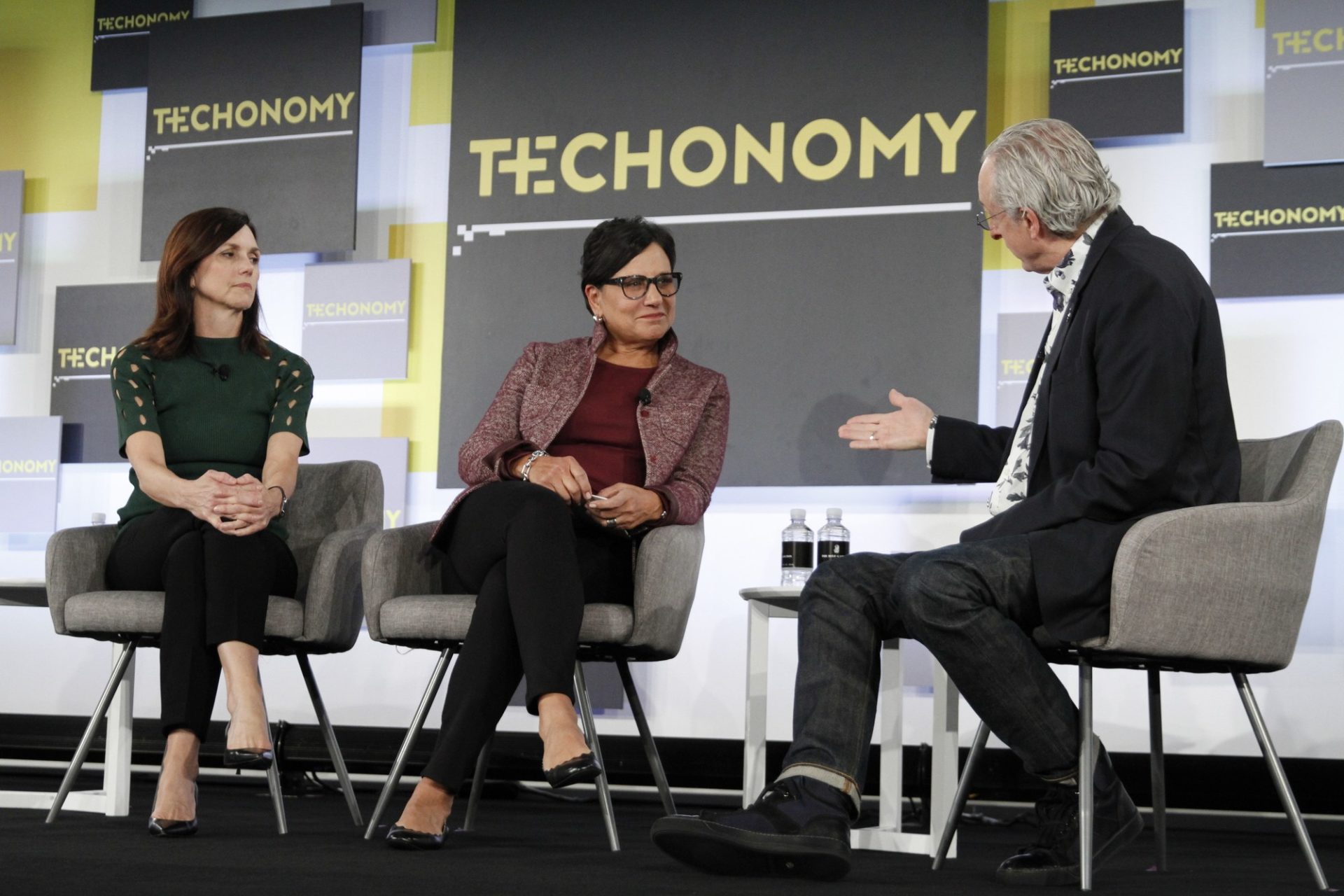After years of businesses taking on digital transformation, the path forward is still not clear.
At Sunday’s session of Techonomy 2017, Techonomy CEO David Kirkpatrick spoke about the future of automation and American business with GE Vice Chair Beth Comstock and Penny Pritzker, former U.S. Secretary of Commerce and founder of PSP Capital Partners.
Traditional companies are now “coming to their moment of digital reckoning,” Comstock said. “We’ve been trying to digitize GE for the better part of the past eight years.” One of the most difficult things about it, she said, is that there’s not an obvious point when this kind of transformation is complete. It’s continual and rapid. “It’s really challenging for leaders right now,” Comstock said.
Among the issues, Comstock and Pritzker agreed that there’s a pressing need to understand how automation might displace people and to come up with solutions to ensure that they can find new opportunities. Pritzker noted that government and business leaders will have to work on a local level, not a federal one. “I actually think there’s a lot of change going on,” she said, citing her ongoing work with mayors and governors on this issue. “But the question is, how do we make this systemic?”
Universal basic income has become one of the ready answers to questions about automation and the future of work, but Pritzker and Comstock agreed that it’s not the fix people think it is. “I don’t buy that as the solution,” Pritzker said. “With work comes dignity.” She noted that the U.S. spends less on skills training than any other OECD country except for Chile and Mexico, and called on the public and private sectors to come together to improve this.
Comstock also noted that real progress could come from having a long-term blueprint—a guide showing which programs are most effective so that other businesses or communities could implement them without reinventing the wheel. She said this kind of thing is starting to happen, but it’s still very grassroots. “We need to have a more macro plan,” said Pritzker.
Pritzker also expressed hope that technology experts could participate in programs that would allow them educate policy makers. After all, if government leaders themselves aren’t keeping up with technology changes, she suggested, they are not likely to establish helpful and appropriate policies for the rest of us.
While the search is on for a macro plan, at least one panelist was thinking about these issues on the micro level. Comstock will be leaving GE at the end of this year, and told conference attendees that she is already writing a book about navigating change at work geared toward early- to mid-career employees.
The Future of Work: Automation, Training, and the ‘Digital Reckoning’
At Sunday’s session of Techonomy 2017, Techonomy CEO David Kirkpatrick spoke about the future of automation and American business with GE Vice Chair Beth Comstock and Penny Pritzker, former U.S. Secretary of Commerce and founder of PSP Capital Partners. The bottom line: there's still a lot of work to be done.
















